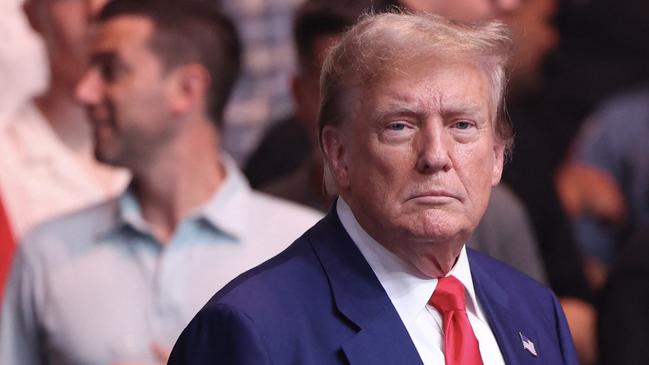Experts divided on how verdicts could deny Trump an Australian visa
Immigration experts are divided over whether former US president Donald Trump could be denied an Australian visa after last week’s historic guilty conviction in New York.

Immigration experts are divided over whether former US president Donald Trump could be denied an Australian visa after his historic guilty conviction in New York last week.
Mr Trump on Friday became the first former US president to be convicted when a Manhattan jury found him guilty on 34 counts of falsifying records to cover up hush money paid to former porn star Stormy Daniels.
University of Sydney immigration law expert Mary Crock said it would be a “big thing” for a world leader to be denied an Australian visa on character grounds, adding Mr Trump did not yet meet an automatic trigger.
“He’s OK for the moment,” she said. “In theory, there are general conduct provisions if he was really regarded as someone who was undesirable, they could be used, but there’s no way they … would be. It would be a big thing – a world leader denied on character grounds.
“Look at Djokovic – he had his visa cancelled, that triggered a provision that could have operated to exclude him from coming to Australia for three years. Of course, he was not excluded because he was world number one.
“Migration legislation gives the minister a huge amount of power – it doesn’t mean that the minister is going to exercise that power.”

In the case that Mr Trump was sentenced to a year or more in jail in the hush-money case, Professor Crock thought it would still be “very unlikely” he would be denied a visa.
But immigration barrister Matthew Crowley claims Mr Trump would “almost certainly” have issues getting an Australian visa due to another finding of sexual assault in a civil case brought against the former president by author E. Jean Carroll.
Mr Trump has appealed the findings, handed down earlier this year in favour of Ms Carroll, in which a court found he sexually assaulted her in the 1990s.
“Any kind of visa may be refused if a person fails the ‘character test’ under (the Migration Act),” Mr Crowley said.
“Because he has not yet been sentenced, he does not automatically fail the character test, because that essentially turns on sentences of imprisonment for at least one year.
“However, it is difficult to see how the (Immigration) minister could be satisfied that he is ‘of good character … having regard to his past and present criminal conduct (and) past and present general conduct’. That is where the Carroll matter becomes relevant, and, I would suggest, far more important.”
Mr Crowley said that the immigration minister did have the power to grant a visa unilaterally but was subject to considerations imposed by the controversial Direction 99.
“(It) would require the decision-maker to treat his sexual assault finding as a primary consideration weighing very heavily against the granting of a visa,” he said.






To join the conversation, please log in. Don't have an account? Register
Join the conversation, you are commenting as Logout